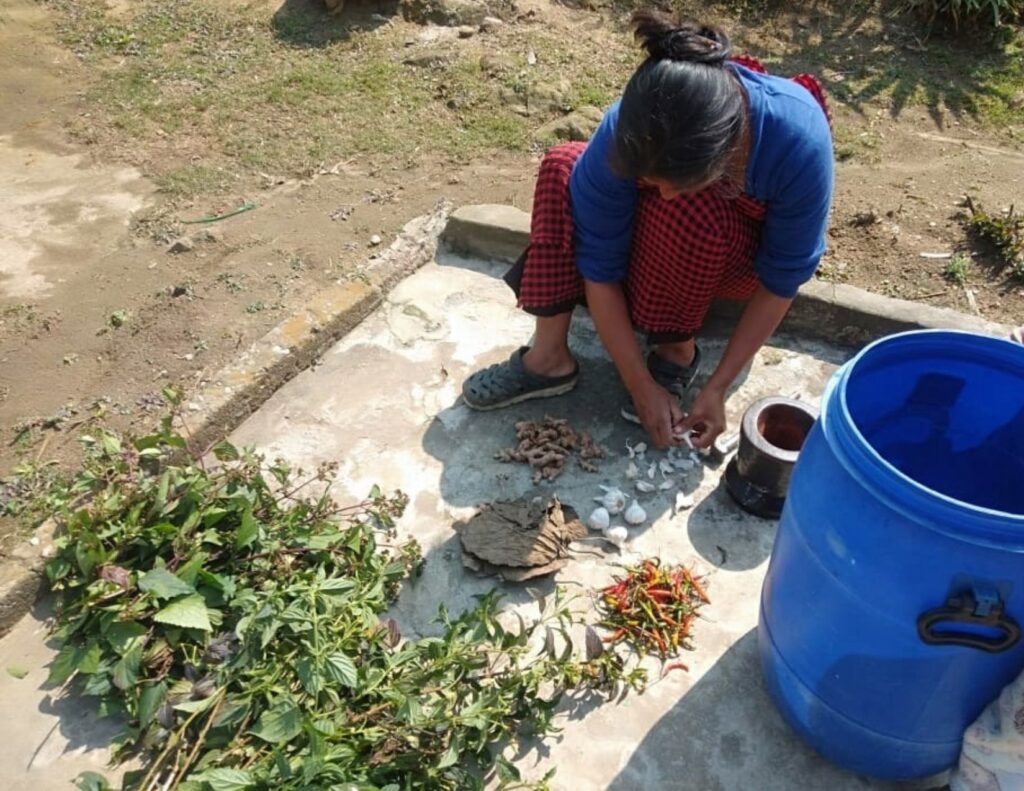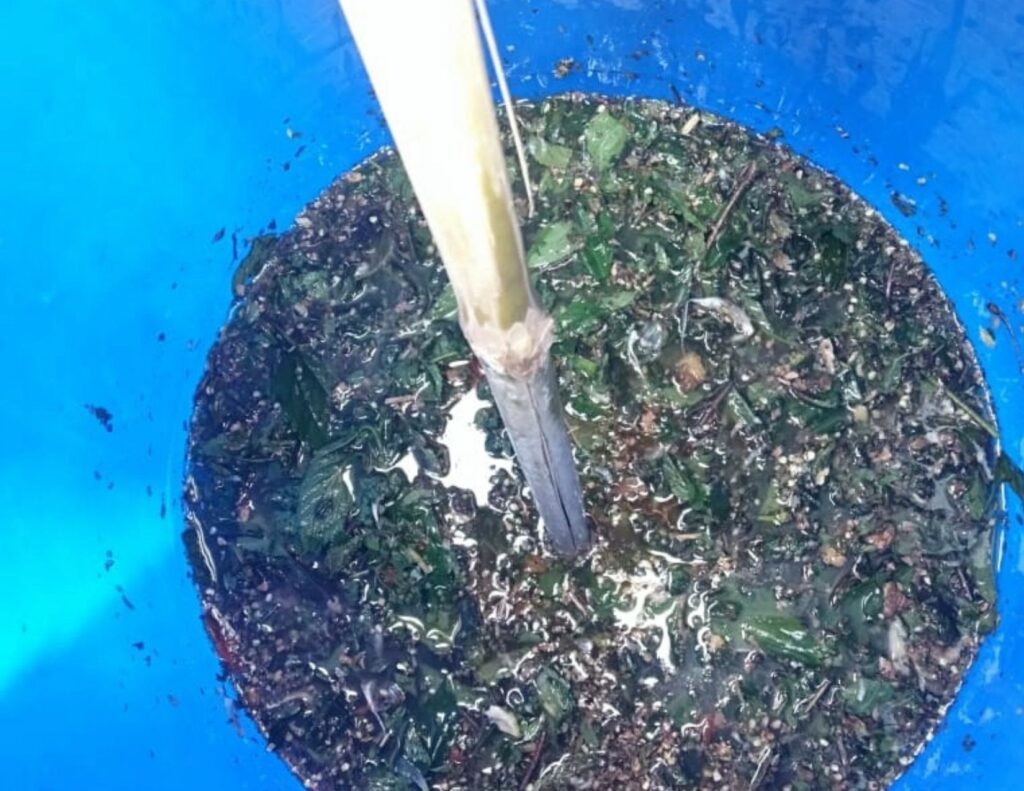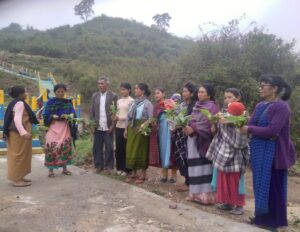Over the years, indigenous farmers from our partner communities have acknowledged and slowly adopted new and innovative approach for the production of healthy food while protecting both the ecology and the traditional farming system. The proper observation and control of pests can minimize the economic losses and damage to the environment.
To locally tackle the issue on pests, Agroecology Learning Circle (ALC) members have performed some experiments on soil health and pest management with traditional knowledge, and also share the same with fellow farmers who contribute and preserve traditional knowledge in various ways.

In 2017, an experiment on pests management and soil health for a good yield was started by Kong Halbaris Lamare, a custodian farmer from Larnai community. She decided to switch to natural alternatives. She also shared that chemical pesticides or insecticides from the market were too expensive.
Kong Halbaris mentioned, “The objective of this experiment is to avoid the use of chemicals and promote the use of traditional methods.”
One of the techniques implemented by her includes mixing ginger, chilli, garlic, tobacco leaves and lantana leaves with water and spraying the mixture all over the field to repel pests. This ingredient works best for pests like cabbage larva, which are usually found in cabbage, mustard leaves and cauliflower.

The community members, after having witnessed the success of the experiment, started to have an interest in learning more. Kong Halbaris has also been very helpful in imparting the training on this experiment to other farmers.
“I have urged my fellow farmers to try this experiment. Although it is time taking, patience is required in order for it to become effective as now is the time to revitalize the indigenous knowledge and practices”, expressed Kong Halbaris Lamare.
One of the challenges faced by her while experimenting was that there were not enough buckets to experiment on a large quantity.
The experiment was a successful one as she has been able to make use of the traditional methods and gave up chemical fertilizers because she understood that they provide short term benefits and can cause several major issues like soil degradation and health problems.



